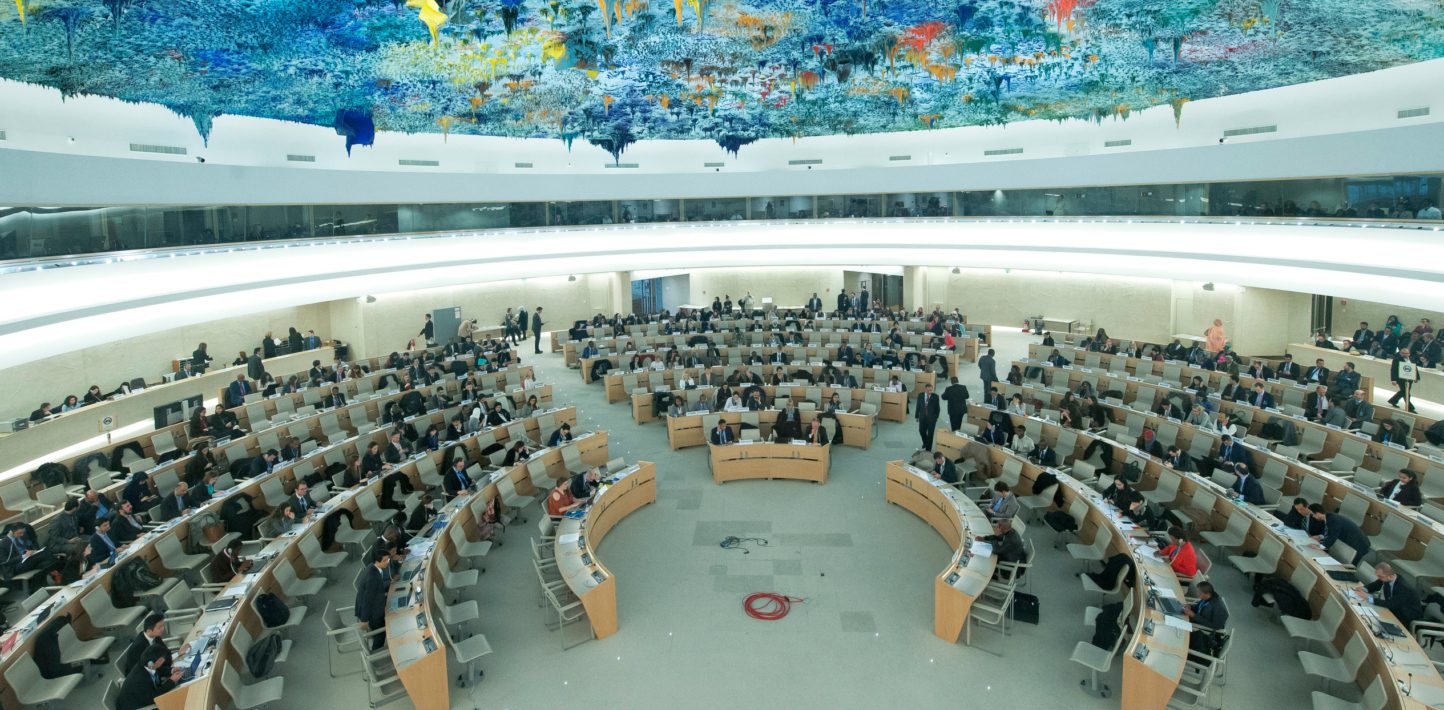The Tunisian government must demonstrate its commitment to human rights by accepting recommendations on combating torture, ending discrimination and protecting women and girls from sexual and gender based violence, said Amnesty International. The Tunisian government received recommendations from more than 50 states at the country’s third Universal Periodic Review by the UN Human Rights Council today.
“While Tunisia has made some progress on opening up political and civil space and some legislative reforms have been introduced, the security sector has remained largely unchanged and in recent years there has been a resurgence of violations committed with impunity,” said Heba Morayef, North Africa Research Director at Amnesty International.
Tunisia had its last Human Rights Council review in May 2012. Since then the country has adopted a new constitution guaranteeing key human rights, as well as a new transitional justice law. It has also amended provisions of the Code of Criminal Procedure to strengthen fair trial rights. However, an Amnesty International report published in February 2017 highlighted how violations including torture, arbitrary arrest and restrictions on movement have continued to be committed in the name of national security. Discrimination against women and LGBTI people also remains a challenge.
This review comes at a critical moment for Tunisia. It provides a crucial opportunity to take stock of where Tunisia’s transition stands in terms of human rights reforms six years on from the uprising and in the face of ongoing security challenge
Heba Morayef, North Africa research director at Amnesty International
“This review comes at a critical moment for Tunisia. It provides a crucial opportunity to take stock of where Tunisia’s transition stands in terms of human rights reforms six years on from the uprising and in the face of ongoing security challenges,” said Heba Morayef.
In a national report submitted to the UN Human Rights Council the Tunisian government focused on constitutional reforms and the role and structure of the new independent bodies that have been established to implement reforms since its last review, such as the Good Governance and Anti-corruption Authority, the Truth and Dignity Commission and the National Authority for the Prevention of Torture. However, the report failed to address concerns regarding ongoing human rights violations by security forces, nor did it detail what accountability there has been so far for violations committed over the past five years.
More than 12 states made recommendations specifically relating to combating torture and other ill-treatment, including recommendations to investigate allegations and prosecute those found responsible. A recommendation by Canada suggested installing video cameras in pre-trial detention centres in order to enhance the prevention of torture and other ill-treatment. Several states also highlighted the importance of providing the National Preventive Mechanism with the resources it needed and guaranteeing its independence.
In its recent report, Amnesty International documented cases of torture and other ill-treatment in the context of counter-terrorism operations in the past two years. There have been very few successful torture prosecutions in Tunisia over the past four years and there is a general climate of pervasive impunity for violations by law enforcement forces.
Recommendations made by Japan, Norway, and Finland stressed Tunisia’s responsibility to protect and guarantee human rights in the context of fighting terrorism including the right to fair trial, and the rights to freedom of expression, peaceful assembly and association.
No less than 15 states made recommendations to Tunisia regarding the need to eliminate discrimination based on sexual orientation or gender identity, mostly urging Tunisia to reform legislation criminalizing same-sex relations. Article 230 of Tunisia’s Penal Code provides for the imprisonment for up to three years of any individual who engages in same-sex relations. The provision is blatantly discriminatory and makes LGBTI people more vulnerable to violence and other abuse by the police. In addition, the forced medical examinations imposed on men accused of engaging in consensual same-sex relations to “prove” such sexual activity amount to rape and thus to torture.
Another key recommendation addressed repeatedly to Tunisia today was a call to expedite the adoption of comprehensive legislation on violence against women and girls, including by criminalizing marital rape and repealing a law allowing a rapist to escape prosecution by marrying his victim, and to take concrete steps towards amending all provisions that discriminate against women.
Tunisia has a chance to demonstrate to the world today that it is truly committed to implementing human rights reforms by adopting recommendations to bring national legislation into line with international human rights law and standards
Heba Morayef, North Africa research director at Amnesty International
“Tunisia has a chance to demonstrate to the world today that it is truly committed to implementing human rights reforms by adopting recommendations to bring national legislation into line with international human rights law and standards, particularly regarding discrimination,” Heba Morayef said.
While there continues to be a moratorium on executions in Tunisia, in 2015 the authorities passed a new counterterrorism law that prescribes the death penalty for various offences. Although Tunisia has failed to support recommendations to abolish the death penalty in the past, this review also offers a fresh opportunity for Tunisia to reconsider its position on the death penalty.


